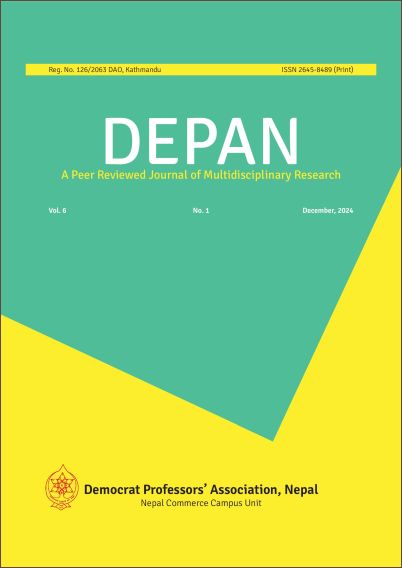Employees’ Performance Paradigm: A Review Envisions for Behavioral Perspectives
DOI:
https://doi.org/10.3126/depan.v6i1.75489Keywords:
Employee performance, Employees’ behavioral performance, Task and Contextual performance, Organizational citizenship behavior, Counterproductivity work behaviorAbstract
The main purpose of the study is to analyze and synthesize existing academic literature on employee performance through a behavioral lens. Systematic review and qualitative method have been adopted by this study. This study focusses on the assessment of peer-reviewed journal articles published in the last 10-35 years. The academic databases such as PubMed, JSTOR, Scopus, google Scholar and Web of social science are included. It includes studies on behavioral issues such as contextual performance, employees’ behavioral performance, organizational citizenship behavior, adoptive and helping behavior, extra role performance and non-routine job. The study also reviews the practical aspect of behavioral performance in the service sectors and the internal linkages of behavioral factor. The study excludes articles that focus solely on non-behavioral factors like task performance, routine job, technical performance and external economic conditions. This study found that the major components of employee’s behavioral performance are organizational citizenship behavior, adoptive behavior, team work, counterproductivity work behavior, emotional intelligence and proactive performance. In the future the employee’s behavioral performance is important due to present dynamism in technological advancement and job in remote and diversified working climate.
Downloads
Downloads
Published
How to Cite
Issue
Section
License

This work is licensed under a Creative Commons Attribution 4.0 International License.
This license enables reusers to distribute, remix, adapt, and build upon the material in any medium or format, so long as attribution is given to the creator. The license allows for commercial use.




